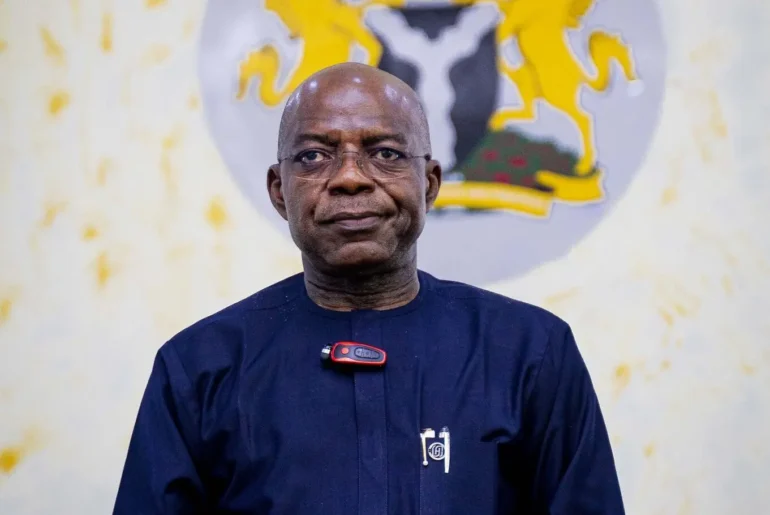Abia State Governor Alex Otti on Tuesday presented a N1.016 trillion budget proposal for 2026 to the State House of Assembly, describing it as a blueprint for accelerated growth and expanded opportunities.
The appropriation bill, titled “Budget of Acceleration and New Possibilities,” was presented to Speaker Emmanuel Emereuwa and members of the 8th Assembly. Otti said the proposal reflects his administration’s commitment to deepening infrastructural development, strengthening social services, and sustaining ongoing economic reforms. The 2026 budget represents a 13% increase over the 2025 fiscal plan.
Otti disclosed that N811.8 billion, or 80% of the total budget, is earmarked for capital projects, while N204.4 billion (20%) will cover recurrent expenditure. He emphasized that recurrent spending will be fully funded from the state’s Internally Generated Revenue (IGR), with externally sourced funds directed strictly toward infrastructure projects.
The governor projected revenue of N83.2 billion from FAAC, N67.1 billion from VAT, N26.5 billion from grants and aid, and N168 billion from other federal channels. Combined internal and external revenue for 2026 is estimated at N607.2 billion, leaving a deficit of N409 billion (40% of the budget), which Otti said will be financed through concessional loans. “We shall borrow only when necessary, and such funds will be deployed exclusively for projects capable of repaying themselves in the medium to long term,” he said.
Sectoral allocations
Education will receive N203.2 billion (20% of the budget), with N150.4 billion for teachers’ salaries and capital projects. Plans include constructing 17 model primary and secondary schools, three technical colleges, and establishing staff quarters and ICT labs in over 100 public schools. Tertiary institutions such as ABSU, Ogbonnaya Onu Polytechnic, and Abia State College of Education (Technical), Arochukwu, will receive N52.8 billion.
Healthcare is allocated N149.7 billion (15%), covering essential medical equipment for ABSUTH and 23 other public health facilities, reconstruction or renovation of seven general hospitals, and infrastructure upgrades to enhance manpower development.
Roads will account for N169.3 billion (16.7%), funding major projects including Umuahia–Ikot Ekpene, Ahiaeke–Okwuta–Bende, Umuahia–Umueze–Agwu–Mbom, Nkata–Amaeke, and Agbo–Umueze roads, as well as several community-impact roads across the state.
Transport will receive N11.1 billion, including N6 billion for the purchase of 80 additional 40-seater electric buses, completing inter-modal transport terminals, junction improvements, and construction of bus shelters. The first batch of 20 customised electric buses has already been delivered.
The budget also includes programs to support entrepreneurs, farmers, youths in sports and ICT, women, and vulnerable households. Over N229 billion is earmarked for housing, environmental protection, urban renewal, and cultural development.
Otti highlighted that independent assessments have ranked Abia among states with improved fiscal governance and rising revenue performance, thanks to investments in infrastructure, security, and technology-driven revenue collection. The state’s IGR, which was around N20 billion a few years ago and is projected at N100 billion in 2025, is expected to reach N223.4 billion in 2026, reflecting increased investor confidence and expanding economic activity.
In September, Otti called on traditional rulers, civil society organizations, and youths to provide inputs that would shape the 2026 budget.


